Using private developers to build on campus cited as a model for reviving NJ cities
-

-
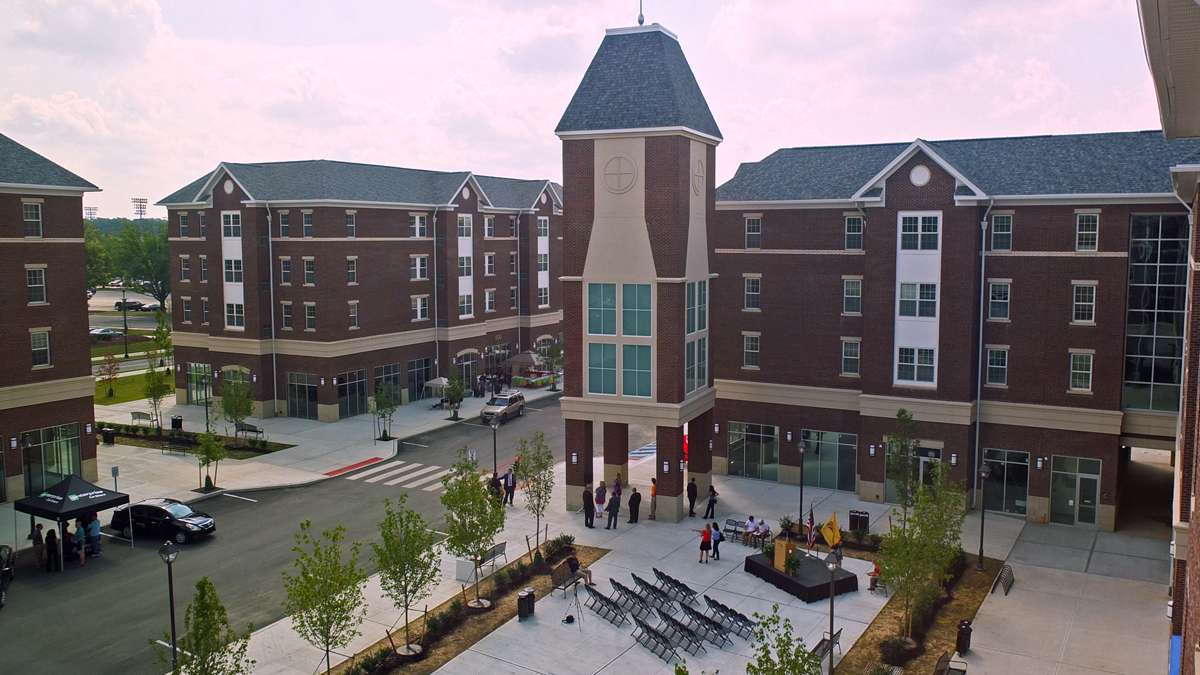
-

-

-

-

-
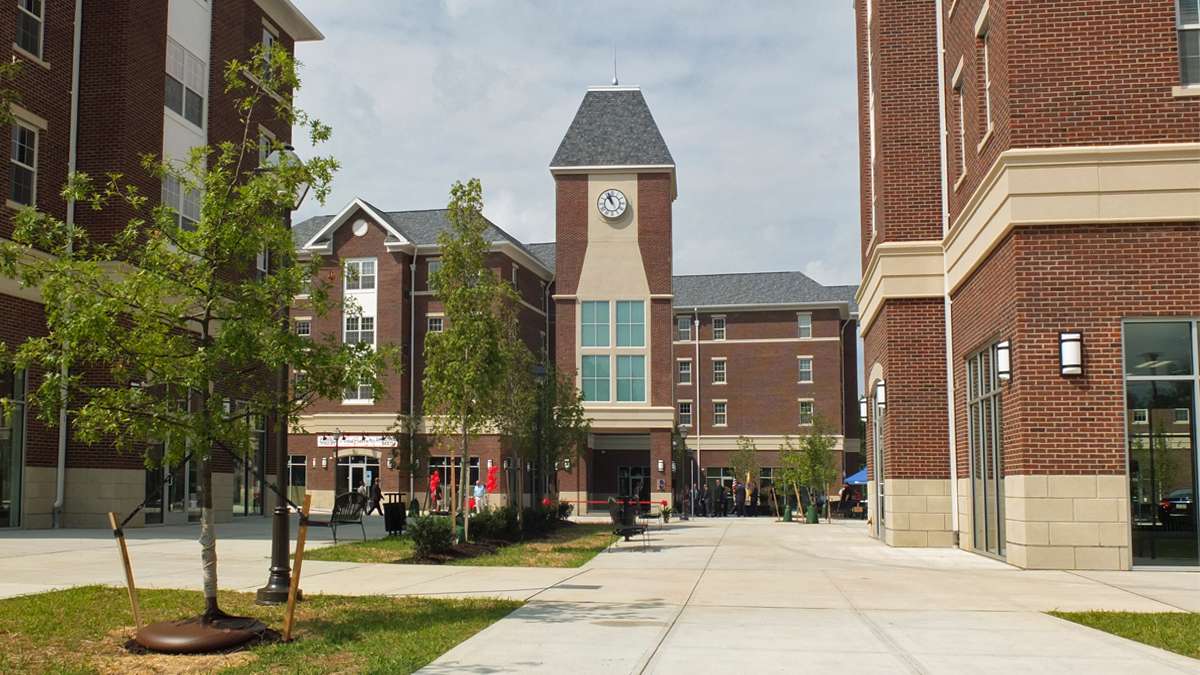
-
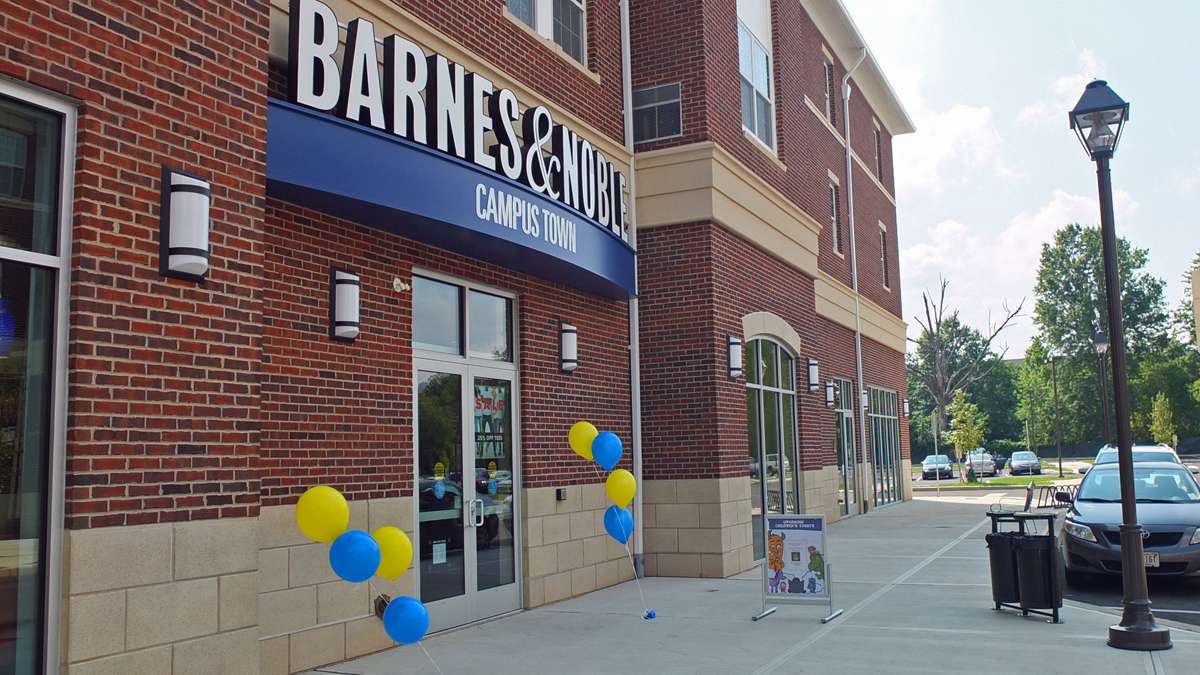
-

-

-

-
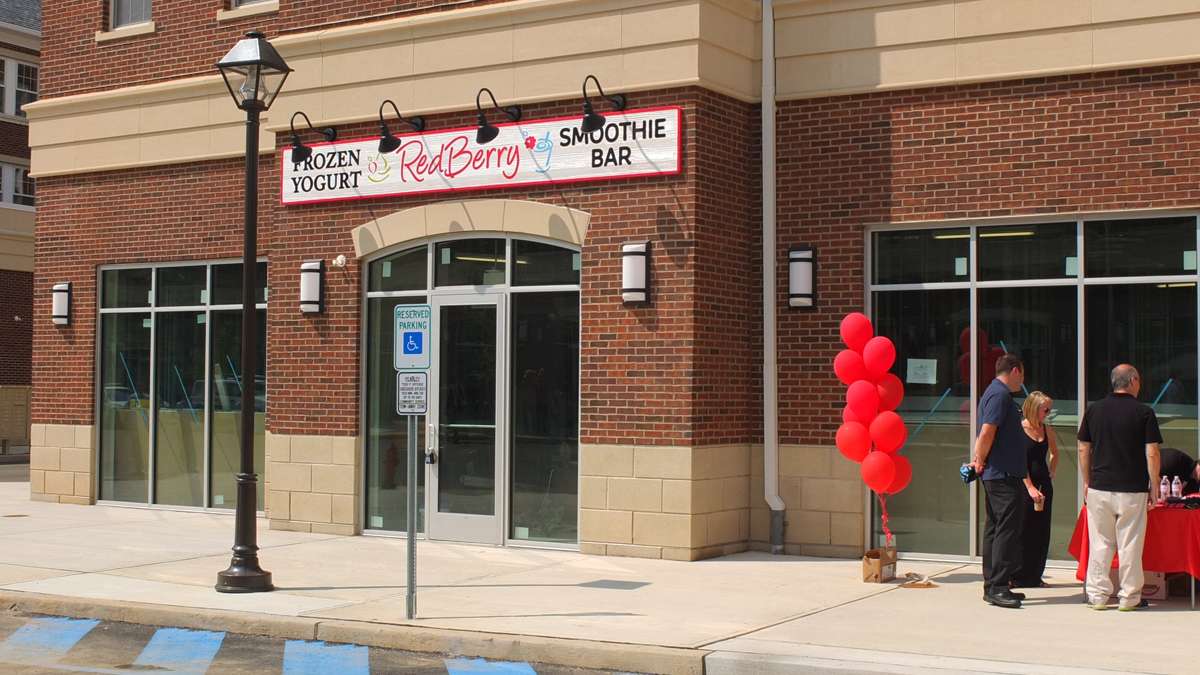
-

-
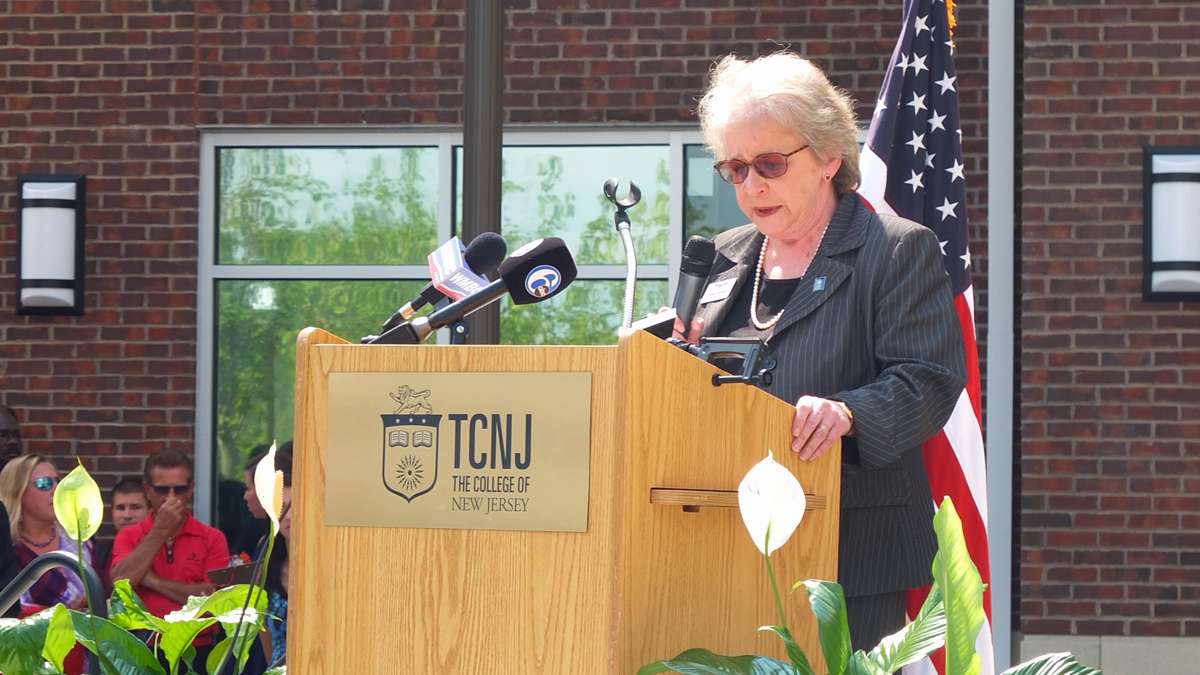
-
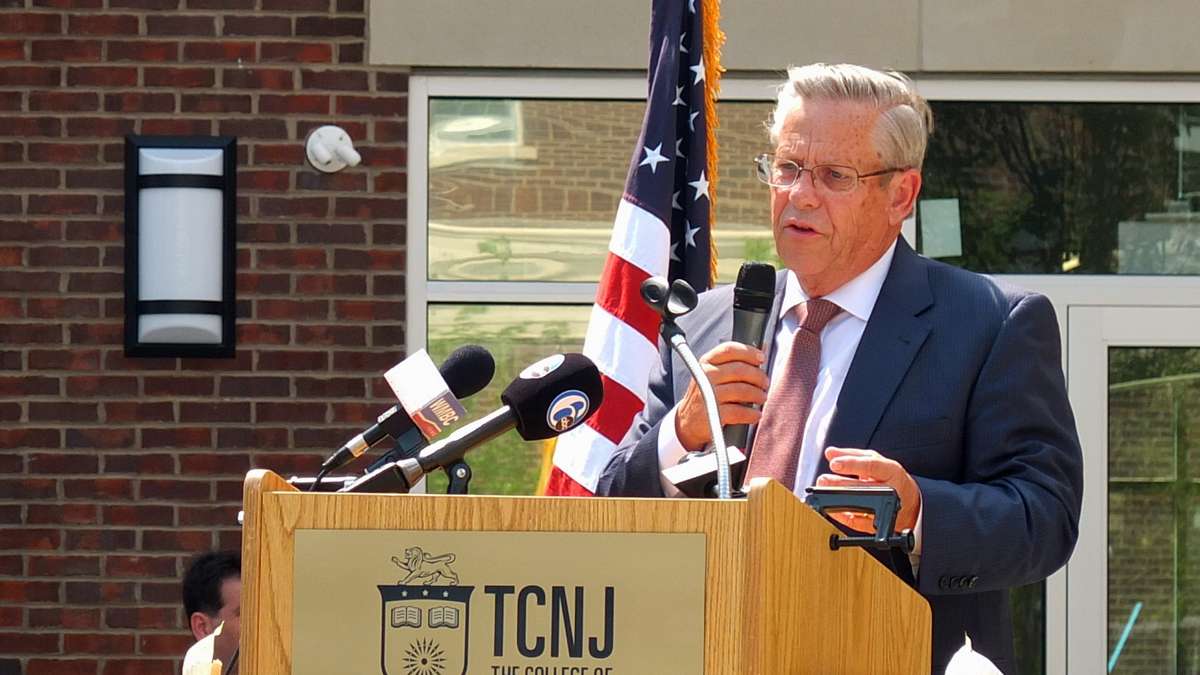
-

-
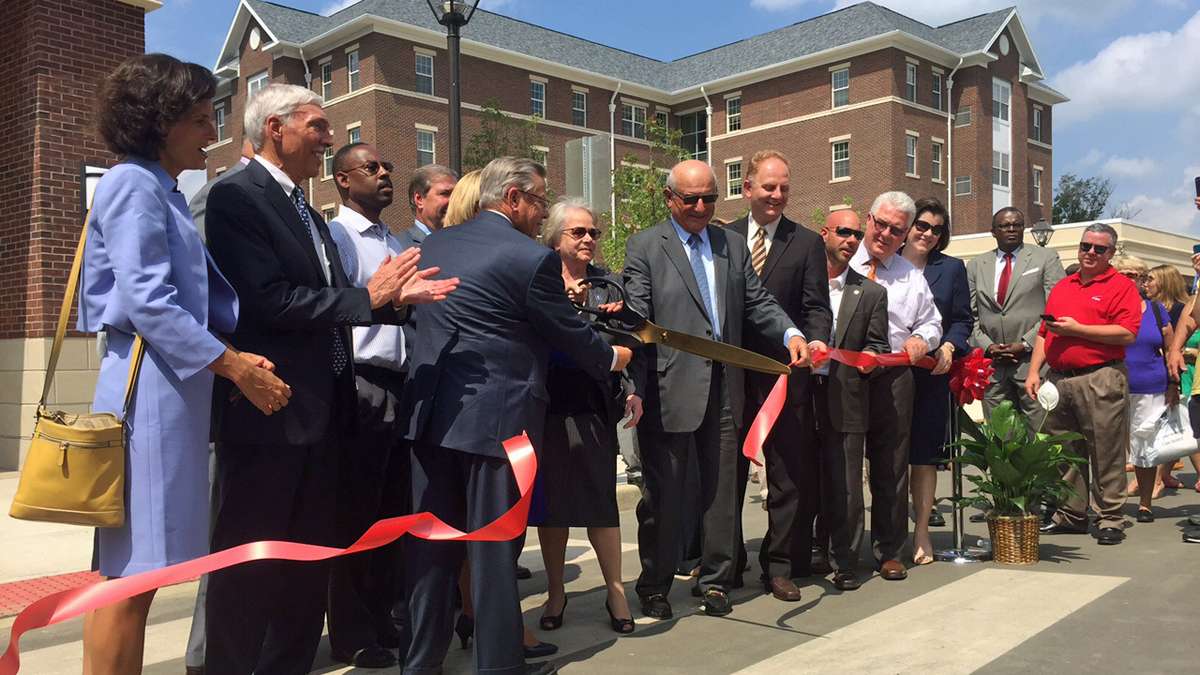
The red ribbon was cut at The College of New Jersey's 'Campus Town' project on Aug 19, 2015. (Alan Tu/WHYY)
-
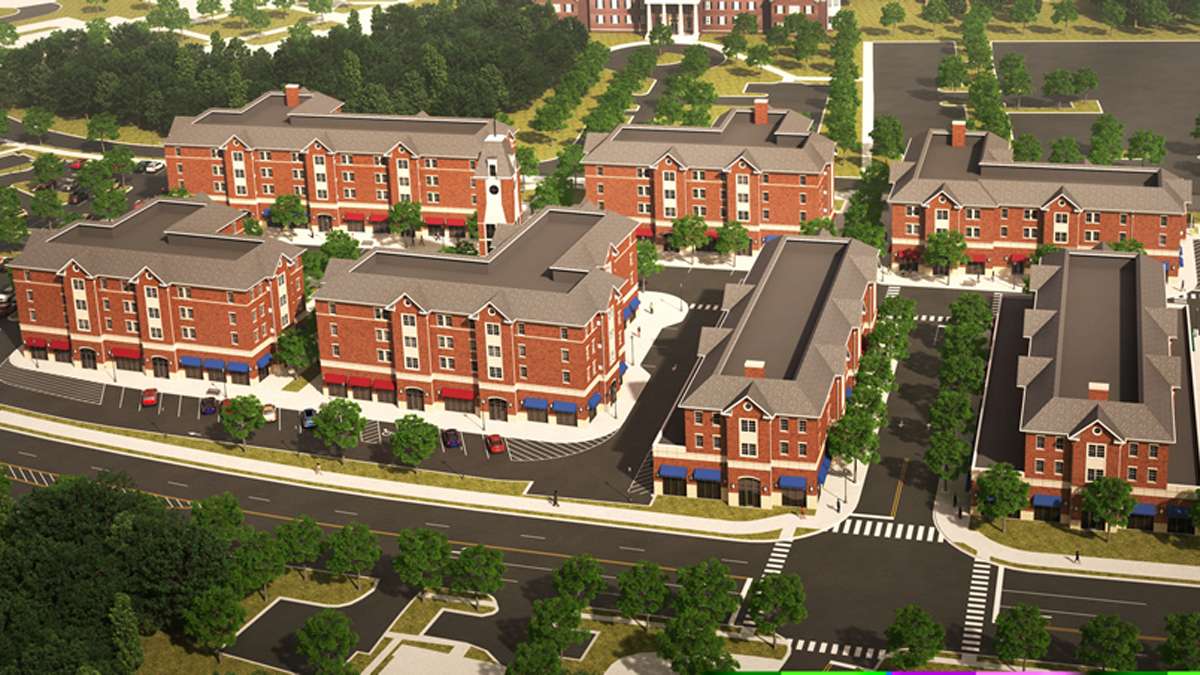
2015. (Alan Tu/WHYY)
From the new “Campus Town” at The College of New Jersey in Ewing to the extensive efforts involving Rutgers University that have remade downtown New Brunswick, partnerships between the private sector and government entities like public colleges have proven to be an effective redevelopment tool in New Jersey.
Now, a new redevelopment effort is trying to replicate that success in Atlantic City, and a group of state senators is exploring whether the time has come for New Jersey laws to be updated to make it even easier for government entities to work with the private sector, whether it’s redeveloping college housing or even building new infrastructure as the state struggles to find a stable source of funding for road, bridge and rail projects.
“They work,” said state Sen. Jim Whelan (D-Atlantic) during a forum held yesterday in Atlantic City in conjunction with the New Jersey State League of Municipalities’ annual convention. “They put people to work, they build things.”
“They’re economic development generators,” Whelan said.
Across town from the Atlantic City Convention Center, which hosted the league’s three-day event this week, is the site of a planned $210 million public-private partnership and mixed-use development dubbed Gateway that will feature both a satellite campus for Stockton University and a corporate headquarters for South Jersey Gas.
The project could ultimately mean 1,600 people will either be working or living in the redevelopment area in the Chelsea section of Atlantic City once construction is completed in late 2018, said Chris Paladino, president of New Brunswick’s nonprofit development corporation, DEVCO.
“It’s in an already pretty vibrant neighborhood,” said Paladino, who is also participating in the Atlantic City redevelopment effort.
Private-public partnership
The city’s new Gateway project will create an estimated 1,000 construction jobs and another 300 permanent jobs, he said.
The combination of a public college, private-sector involvement and a major corporate partner like South Jersey Gas give the Atlantic City project some of the same elements the redevelopment initiative Paladino has led in New Brunswick, including development of a new “wellness center” and a transit village in the downtown.
“I think that this project really has a lot of the same elements, the same feel, the same pace,” Paladino said.
Joseph Kelly, president of the Greater Atlantic City Chamber of Commerce, praised the Gateway project, saying Atlantic City – which has been hit hard in recent years by a series of casino closures and other economic problems — is in the midst of trying to diversify its economy and move away from an overreliance on the casino industry.
“There’s something about oceanfront dorm rooms that just makes a lot of sense,” Kelly said.
“It’s nice to see things come together and that’s what we’re feeling,” he said during yesterday’s forum, which was organized as part of the Senate Democrats’ “Investing in You” initiative.
That initiative is trying to highlight how more state spending in key areas like education and infrastructure can boost a New Jersey economy still struggling to recover all of the jobs lost to the last recession.
New unemployment numbers released yesterday showed the state’s jobless rate ticked down again last month, to 5.4 percent. And though the state unemployment rate is now down more than a point since May, it’s still higher than the federal jobless rate of 5 percent.
“The economy of this state is lagging all the other states in the nation, and we shouldn’t be,” said Senate President Stephen Sweeney (D-Gloucester).
TCNJ’s Campus Town project

Another example of a successful public-private partnership that was touted during yesterday’s forum is The College of New Jersey’s new $120 million “Campus Town” mixed-use development, which opened over the summer in Ewing.
Featuring stores on the ground level and student residences above, the project made the college more a part of the Ewing community along Route 31, said Barbara Gitenstein, the college’s president.
“We’re seeing a wonderful reengagement of our students with the local community, and the local community with our students,” Gitenstein said.
Thanks to a partnership with West Long Branch-based PRC Group, the college owns the property and leases the retail space, allowing property taxes to be collected from a portion of the property that otherwise would be off the tax rolls.
“We used no public money, no student tuition dollars, and we were able to meet all of our goals,” she said.
Lt. Gov. Kim Guadagno, who gave the keynote address yesterday during a luncheon held on the final day of the League of Municipalities convention, attended the ribbon-cutting ceremony for the TCNJ project when it opened earlier this year.
“Everybody wins,” Guadagno said when asked about such projects after her luncheon speech. “On that, I don’t see anyone disagreeing.”
But some of the legislation that allowed for the public-private partnerships on college campuses has expired, and lawmakers are also considering expanding the law to allow more coordination, possibly involving local governments and school districts. That effort will be a priority as lawmakers get back to work this fall and even into the new legislative session beginning early next year, they said during the forum.
In addition to expanding college campuses to keep more New Jersey students from leaving the state after they graduate high school, the lawmakers said they also envision more private-sector investment as the state tries to find ways to sustain spending on transportation infrastructure.
The state’s Transportation Trust Fund is set to run out of money for new projects by June 30, 2016, and the most likely way to renew it – an increase in the state’s gas tax – remains unpopular with New Jersey voters.
“That’s what it’s about, getting the private-sector dollars,” Sweeney said. “Government cannot fund everything.”
________________________________________________________________
NJ Spotlight, an independent online news service on issues critical to New Jersey, makes its in-depth reporting available to NewsWorks.
WHYY is your source for fact-based, in-depth journalism and information. As a nonprofit organization, we rely on financial support from readers like you. Please give today.




